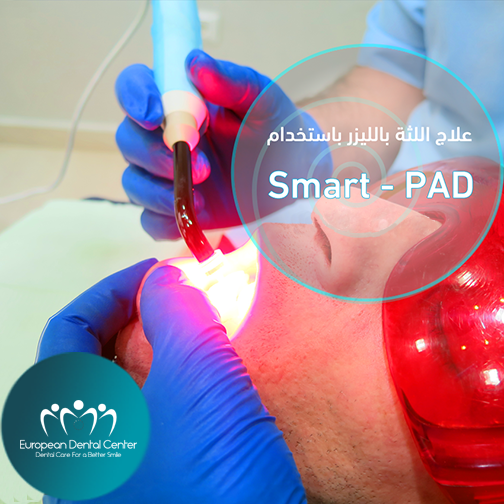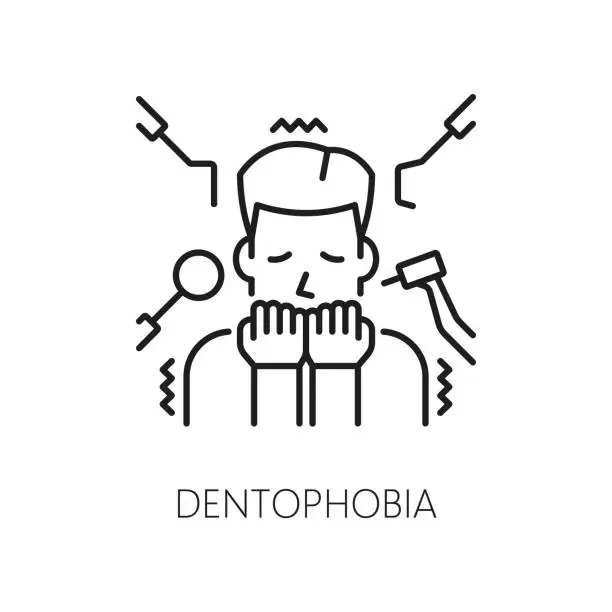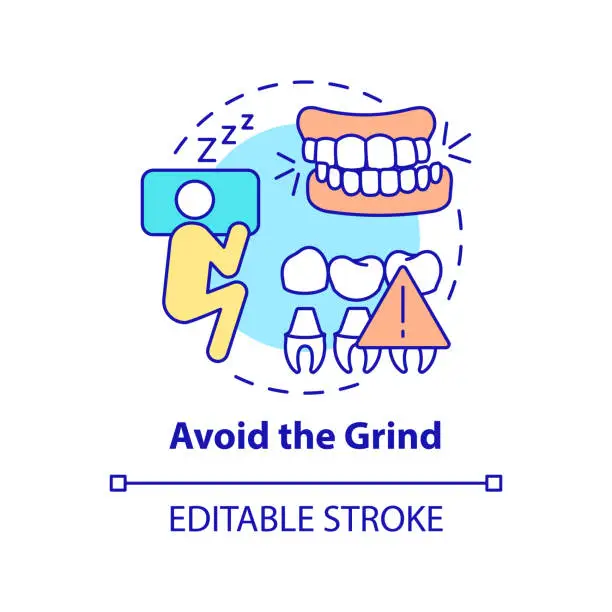European Dental Center always searches and follows all the developed technology such as PAD (photo activation disinfection) in the world because you are important to us. PAD(photo activation disinfection) As we say how we can get a fixed house without strong foundations? Then this look like the tooth and periodontal tissue, firstly we must care of periodontium to reach to the perfect appearance and one of the most recent perfect technology that what’s called Smart Pad which is an innovative technology that utilizes two non-toxic components, a photo-activating liquid and an LED light source to selectively tag and destroy cariogenic bacteria and periodontal pathogens. device fields We use it as disinfect device in different fields: Prophylaxis. Periodontics. Implantology. Endodontic. Restorative dentistry. How to make a Smart Pad? The device consists of two main components: the blue dye, which specifically targets bacteria, and the second component is the red light, which activates the blue liquid, leading to the killing of these bacteria without harming any other tissues or natural cells. Moreover, the use of a Smart Pad does not cause any pain and has no side effects. Benefits of using a smart pad for the patient There are many benefits to using the device in the dental clinic, including: Completely painless treatment. Reduced need for anesthesia. Almost negligible risk of inflammation recurrence. Reduced likelihood of needing nerve removal in cases of deep decay. Lower risk of tooth loss. Increased cooperation from children during treatment. Ensured success of nerve treatment. Nerve treatment in a single session. More successful and guaranteed results in treating peri-implantitis. More successful treatment of gum pockets and ensured results. European Dental Center; best dental clinic in Jordan provide this information about PAD(photo activation disinfection).
If you are nervous about an upcoming dental procedure, So Nitrous Oxide can relieve your dental fears Nitrous oxide (N20) is commonly called “laughing gas”, a colorless gas with a pleasant taste and odor. It relieves pain and anxiety during dental procedures, it would keep patients pain-free during dental procedures and surgery Nitrous oxide does not put you to sleep. You can still respond to your dentist’s requests and answer questions. Your speech may be slightly slurred, and your responses may be slower than usual. In general, you will be relaxed and cooperative. You will know when you are receiving an injection, and you may even feel it. But you probably won’t care. Your breathing and heartbeat will still be normal. Nitrous Oxide is perhaps the safest sedative in dentistry. Its can relieve patients’ fear so as to help them relax during their visit. And to receive dental treatment in a comfortable and safe manner also it is safe for children who visit the pediatric dentist and may be overly nervous or anxious about their scheduled treatments. Nitrous oxide (N20) is commonly called “laughing gas.” A colorless gas with a pleasant taste and odor .It relieves pain and anxiety during dental procedures European Dental Center; best dental clinic in Jordan provide this information about Are you nervous about an upcoming dental procedure?
Sleep bruxism, also known as nocturnal tooth grinding, is the medical term for clenching or grinding teeth during sleep. Sleep bruxism A type of movement disorder that occurs during sleep. nocturnal tooth grindingis a common condition – one survey estimates that 8% of adults grind their teeth at night and a study shows that more than a third of parents report symptoms of bruxism in their children. Occasional nocturnal tooth grinding may not be harmful but when it occurs regularly, it may be associated with moderate to severe dental damage, facial pain, and disturbed sleep. Although the causes of bruxism are unknown. One study links it with such factors as: Anxiety. Stress. alcohol consumption. Cigarette smoking. Caffeine. Sleep apnea. Snoring. Excessive daytime sleepiness. Importantly, psychiatric or psychological factors do not play a role in most cases. Use of certain medications, including amphetamines, are also associated with episodes of bruxism. Sleep apnea may also be related to nocturnal tooth grinding. And evidence suggests that treating sleep apnea can help alleviate nocturnal tooth grinding. People who have nocturnal tooth grinding can also suffer headaches, earaches, jaw pain, jaw joint disorders and damaged teeth. Sleep bruxism may also be linked with other medical conditions. And have an impact on quality of life. If you feel you may suffer from nocturnal tooth grinding, talk to your doctor about ways to treat it and see Treatment and Coping. European Dental Center; best dental clinic in Jordan provide this information about Sleep bruxism.











